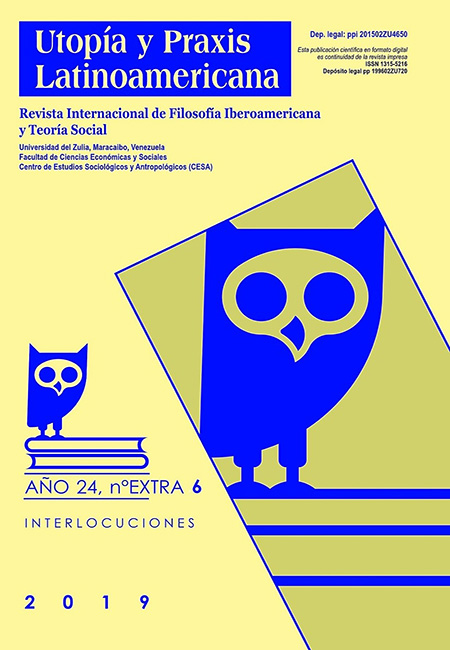Determinants of job hopping factors among lecturers in private universities, Malaysia
Resumen
ABSTRACT
Job-hopping is becoming a phenomenon over the years as lecturers keep moving from one job to another for better opportunities and self-development. The objective of this research is to study the factors that influence job-hopping in Private University in Malaysia. The anteceding factors are lack of promotion and growth, salary and benefits issues, job insecurities and work-life imbalance. A total of 120 questionnaires were distributed to participants who work in private university, Malaysia. The results reported that salary and benefits issues, job insecurities and work-life imbalance have a significant and positive correlation with job-hopping.
RESUMEN
El cambio de trabajo se está convirtiendo en un fenómeno a lo largo de los años a medida que los profesores se mueven de un trabajo a otro. El objetivo del estudio es analizar los factores que promueven el cambio de trabajo como son la falta de promoción y crecimiento, el salario y los problemas de beneficios. Se distribuyeron un total de 120 cuestionarios a los participantes que trabajan en una universidad privada, Malasia. Los resultados informaron que los problemas salariales y de beneficios, las inseguridades laborales y el desequilibrio entre la vida laboral y personal tienen una correlación significativa y positiva con la inestabilidad laboral.
Citas
BANSAL, G (2014). "Job hopping–Issues and challenges in a dynamic environment: An empirical study". Gian Jyoti E-journal, 4(2).
BELDJAZIA, A & ALATOU, D (2016). "Precipitation Variability On The Massif Forest Of Mahouna (North Eastern-Algeria) From 1986 To 2010". International Journal Of Management Sciences And Business Research, 5(3).
CASSELMAN, B (2015). "Enough Already About The Job-Hopping Millennials".
CHEN, JQ, HOU, ZJ, LI, X, LOVELACE, KJ., LIU, YL, & WANG, ZL (2016). "The role of career growth in Chinese new employee’s turnover process". Journal of Career Development, 43(1), pp. 11-25.
COWLING, A, & NEWMAN, K (1995). "Banking on people: TQM, service quality and human resources". Personnel Review, 24(7), pp. 25-40.
DELERY, E & DOTY, DH (1996). "Modes Of Theorizing In Strategic Human Resource Management: Tests Of Universalistic, Contingency, And Configurationally Performance Predictions". Academy Of Management Journal, 38(4).
DHARMAWANSHA, P, & THENNAKOON, D (2016). An Exploratory Study On Job Hopping In Sri Lanka: A Study On Generation ‘Y’ Employees.
GIUNCHI, M, EMANUEL, F, CHAMBEL, MJ, & GHISLIERI, C (2016). "Job insecurity, workload and job exhaustion in temporary agency workers (TAWs) Gender differences". Career Development International, 21(1), pp. 3-18.
HAIR, B, & BABIN, A TATHAM (2006). "Multivariate data analysis". Aufl. Upper Saddle River, NJ.
IFIJE, O, AIGBAVBOA, C, & SITHOLIMELA, D (2016). Effects of job-hopping and its effect on young graduates in the South African construction industry.
KAFEEL, N, & ALVI, AK (2015). "What Play Significant Role in Increasing Turnover Intention: Job Hopping or Perceived Organizational Politics?". Sci. Int. (Lahore), 27(5).
KELLMAN, SK, 2015. An Investigation Into Work-Life Balance And Burnout In A Software Company In Ireland.
KRISHNAN, DLRK (2012). "A Study Of Job Hopping And Employee Turnover In The Telecom Service Industry In The State Of Tamil Nadu". International Journal Of Research In Computer Application & Management, 2(6).
MAHLANGU, BP, & KRUGER, LP (2015). "The impact of the maintenance management system: A case study of the PetroSA GTL refinery". South African Journal of Industrial Engineering, 26(3), pp. 167-182.
MASOOD, A, ASLAM, R, & RIZWAN, M (2014). "Factors affecting employee satisfaction of the public and private sector organizations of Pakistan". International Journal of Human Resource Studies, 4(2), p. 97.
NARESH, B, & RATHNAM, BV (2015). "Job Hopping In Software Industry Concerning Select Software Companies: A Study". International Journal of Recent Research Aspects, 2(1), pp. 38-45.
PRANAYA, D (2014). "Job-Hopping – An Analytical Review". Impact: International Journal Of Research In Business Management (Impact: Ijrbm), 2(4).
SPSSTESTS, (2018). Step By Step To Test Linearity Using Spss.
TROMBETTI, P (2015). Is This Generation Job-Hopping?
YI, LX (2014). Factors That Affect Generation Y Workers’ Organizational Commitment.
YUEN, SH (2016). Examining The Generation E Acts On Job-Hopping Intention By Applying The Eory Of Planned Behavior (Tpb).









